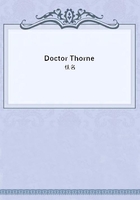
第81章
'But now, having polished off this bit of picture, let me ask you who Mr Moffat is? There are pictures enough about him, too; though Heaven knows where they all come from. I think Sir Edwin Landseer must have done this one of the goose; it is so deadly natural. Look at it; there he is. Upon my word, whoever did that ought to make his fortune at some of these exhibitions. Here he is again, with a big pair of scissors. He calls himself "England's honour"; what the deuce England's honour has to do with tailoring, I can't tell you: perhaps Mr Moffat can. But mind you, my friends, I don't say anything against tailoring: some of you are tailors, I dare say.'
'Yes, we be,' said a little squeaking voice from out of the crowd.
'And a good trade it is. When I first know Barchester there were tailors here could lick any stone-mason in the trade; I say nothing against tailors. But it isn't enough for a man to be a tailor unless he's something else along with it. You're not so fond of tailors that you'll send one up to Parliament merely because he is a tailor.'
'We won't have no tailors. No; nor yet no cabbaging. Take a go of brandy, Roger; you're blown.'
'No, I'm not blown yet. I've a deal more to say about Mr Moffat before I shall be blown. What has he done to entitle him to come here before you and ask you to send him to Parliament? Why; he isn't even a tailor. I wish he were. There's always some good in a fellow who knows how to earn his own bread. But he isn't a tailor; he can't even put a stitch in towards mending England's honour. His father was a tailor; not a Barchester tailor, mind you, so as to give him any claim on your affections; but a London tailor. Now the question is, do you want to send the son of a London tailor up to Parliament to represent you?'
'No, we don't; nor yet we won't either.'
'I rather think not. You've had him once, and what has he done for you? has he said much for you in the House of Commons? Why, he's so dumb a dog that he can't bark even for a bone. I'm told it's quite painful to hear him fumbling and mumbling and trying to get up a speech there over at the White Horse. He doesn't belong to the city; he hasn't done anything for the city; and he hasn't the power to do anything for the city. Then, why on earth does he come here? I'll tell you. The Earl de Courcy brings him. He's going to marry the Earl de Courcy's niece; for they say he's very rich--this tailor's son--only they do say also that he doesn't much like to spend his money. He's going to marry Lord de Courcy's niece, and Lord de Courcy wishes that his nephew should be in Parliament. There, that's the claim which Mr Moffat has here on the people of Barchester. He's Lord de Courcy's nominee, and those who feel themselves bound hand and foot, heart and soul, to Lord de Courcy, had better vote for him. Such men have my leave. If there are enough of such at Barchester to send him to Parliament, the city in which I was born must be very much altered since I was a young man.'
And so finishing his speech, Sir Roger retired within, and recruited himself in the usual manner.
Such was the flood of eloquence at the Dragon of Wantly. At the White Horse, meanwhile, the friends of the De Courcy interest were treated perhaps to sounder political views; though not expressed in periods so intelligibly fluent as those of Sir Roger.
Mr Moffat was a young man, and there was no knowing to what proficiency in the Parliamentary gift of public talking he might yet attain; but hitherto his proficiency was not great. He had, however, endeavoured to make up by study for any want of readiness of speech, and had come to Barchester daily, for the last four days, fortified with a very pretty harangue, which he had prepared for himself in the solitude of his chamber. On the three previous days matters had been allowed to progress with tolerable smoothness, and he had been permitted to deliver himself of his elaborate eloquence with few other interruptions than those occasioned by his own want of practice. But on this, the day of days, the Barchesterian roughs were not so complaisant. It appeared to Mr Moffat, when he essayed to speak, that he was surrounded by enemies rather than friends; and in his heart he gave great blame to Mr Nearthewinde for not managing matters better for him.
'Men of Barchester,' he began, in a voice which was every now and then preternaturally loud, but which, at each fourth or fifth word, gave way from want of power, and descended to its natural weak tone. 'Men of Barchester--electors and non-electors--'
'We is hall electors; hall on us, my young kiddy.'
'Electors and non-electors, I now ask your suffrages, not for the first time--'
'Oh! we've tried you. We know what you're made on. Go on, Snip; don't you let 'em put you down.'
'I've had the honour of representing you in Parliament for the last two years and--'
'And a deuced deal you did for us, didn't you?'
'What could you expect from the ninth part of a man? Never mind, Snip--go on; don't you be out by any of them. Stick to your wax and thread like a man--like the ninth part of a man--go on a little faster, Snip.'